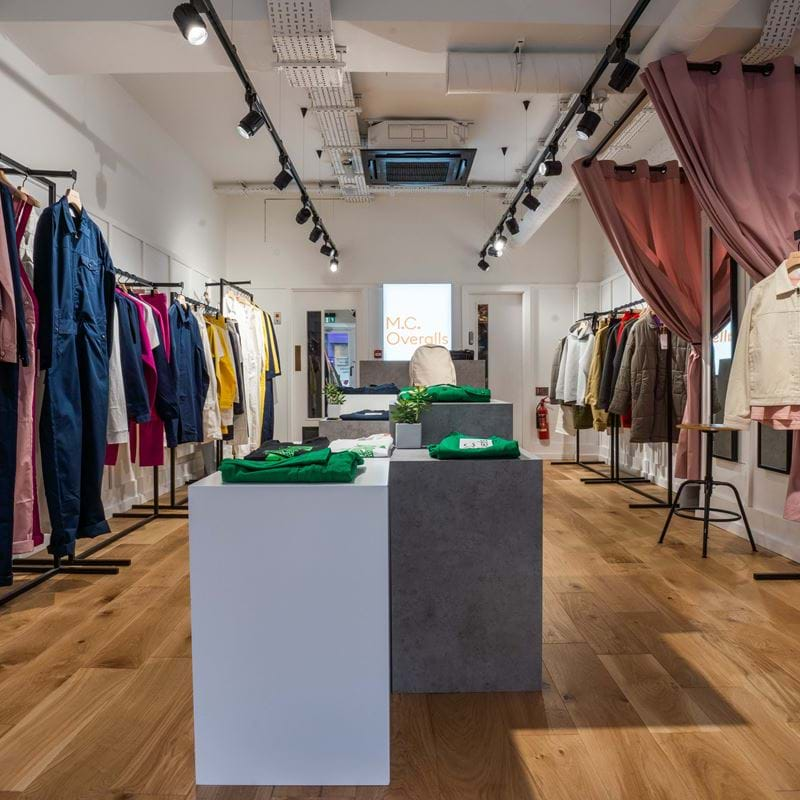Step into vegan pop-up Alter's new residency at Shaman, Leman Locke and you won’t spot any sad, saggy Portobello mushrooms on the menu. No floppy lettuce leaves frowning at you from a depressed green salad. And definitely no unidentifiable lentil mush.
To be honest, you probably won’t realise it’s a vegan restaurant in the first place – and for founder Andy Hogben, this is half the point. An ex-actor who became a chef for establishments including Dabbous, Andrew Wong and Som Saa, Andy created Alter in 2018 to challenge misconceptions around vegan food through his series of pop-ups and supper clubs drawing inspiration from street-food cultures around the world.
His punchy, joyful menus champion global styles of cooking in which the food is vegan “without alteration” – think khao soi laksa, betel leaf with salted watermelon and shiitake and fermented yellow bean wontons. It’s an inclusive, contemporary take on vegan cooking that’ll convince even your most stubbornly carnivorous friend, and flows effortlessly into the current demand for sustainable, local-meets-global dining.
Ahead of the Shaman residency opening on 23 October, Andy takes some time out of the kitchen to share his go-to London restaurants and food markets, life-changing street-food snack and why Tokyo dive bars are the hidden influence behind his latest pop-up.
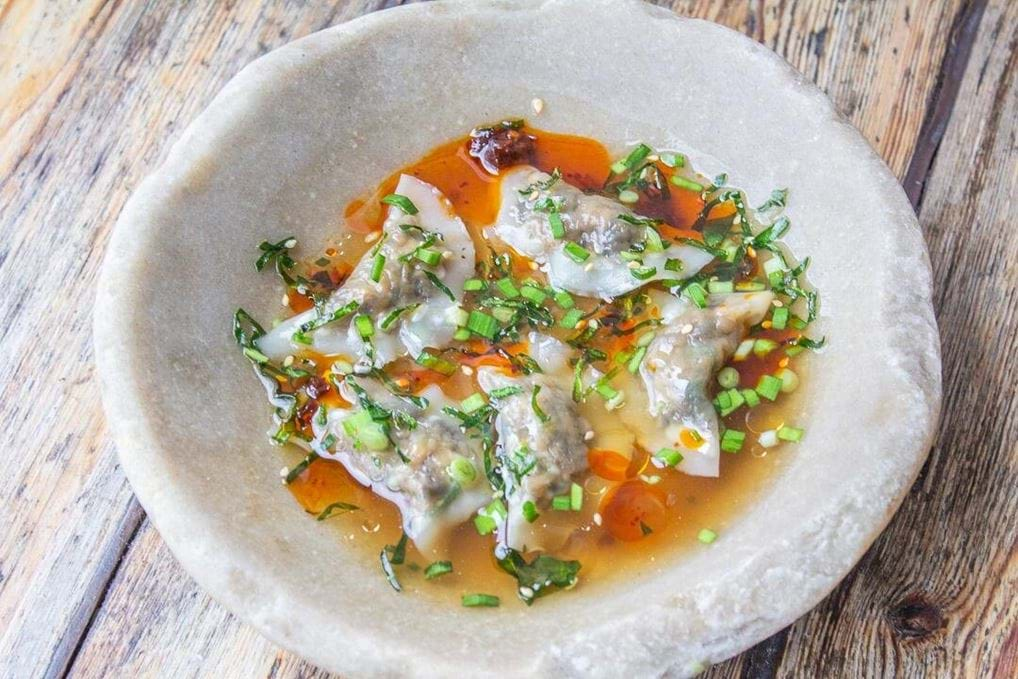
How did you come to focus on vegan and Asian-influenced food?
On my trial shift at Som Saa the head chef took me into the walk-in fridge and we ate our way through Thai and Vietnamese herbs, each of which were completely alien to my Western brain. I became hooked on Asian food and stayed at Som Saa for two years. The vegan thing came much later when I watched a mockumentary film called Carnage by my favourite comedian, Simon Amstell. He has such a brilliant way of pulling on all the threads of the things we’ve accepted as normal – I watched it and I couldn’t sleep. In the morning I watched it again, this time with a pen and paper. I turned to my wife and said “I think I’m vegan now”.
Alter’s mission is to challenge perceptions of vegan food. For those who insist that they need meat with their meal, can you explain why?
Whether we like it or not, the science is out there: the climate crisis has never been more immediate. At the very least, reducing meat and eating vegan more frequently than we currently do is the future. Even so, Alter’s job isn’t to bang the drum for veganism. Our mission is to make it a less depressing proposition for people who want to eat vegan, if only for their next meal. I was so sick of being forced to have the saddest thing on the menu when going out with friends. Our menu is written so no-one has to feel that way.
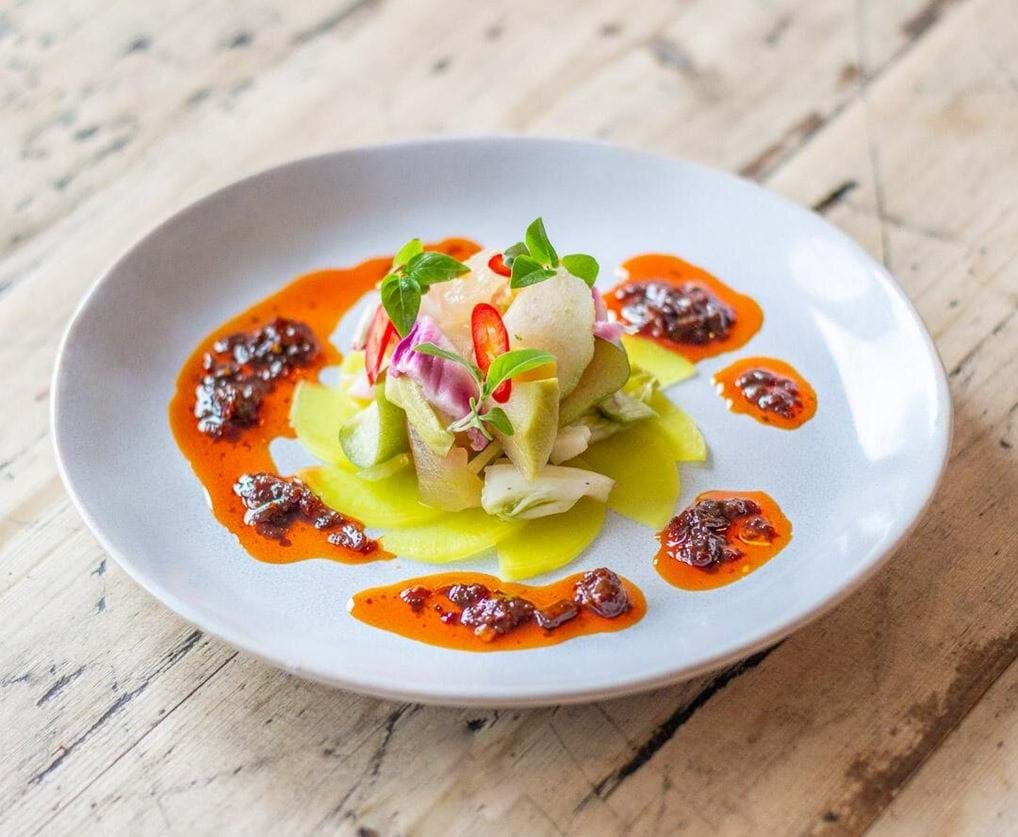
Some of the most punk-rock, uncompromising chefs working today choose to cook vegan food because they believe it stands for something. Is this true of yourself?
It’s true there are some great chefs out there doing some really exciting things, such as Douglas McMaster’s mostly plant-based, zero-waste restaurant Silo and Kirk Haworth at Plates, both in London, or vegan pop-up SANS by Champ Jones in Brooklyn. However, in the main vegan food is still massively looked down on, accentuated by TV shows like Masterchef or the Great British Menu where we’re told to “respect the classics” by people who trained in the 80s and 90s. We’re obsessed with the notion that there’s something deeply un-British about choosing not to eat meat and dairy – it’s nonsense. So if Alter stands for something, it’s about tearing up that obsession with living within our own culture’s rules and embracing being part of something bigger.
What are the big ideas that underpin Alter?
For me, Alter has always been about choosing to step outside of normal ways of thinking. Its name alludes to the experience of “going vegan”. Fundamentally, 'Alter' also means to change course as a result of new information or possibly a warning, which covers the environmental side. The other way you can hear it is like a religious altar – I liked the idea of it being a place where people can explore giving a previous part of themselves away and experience a fresh start. Finally, I also wanted the name to reference altruism – the idea of doing something for others with no reward.
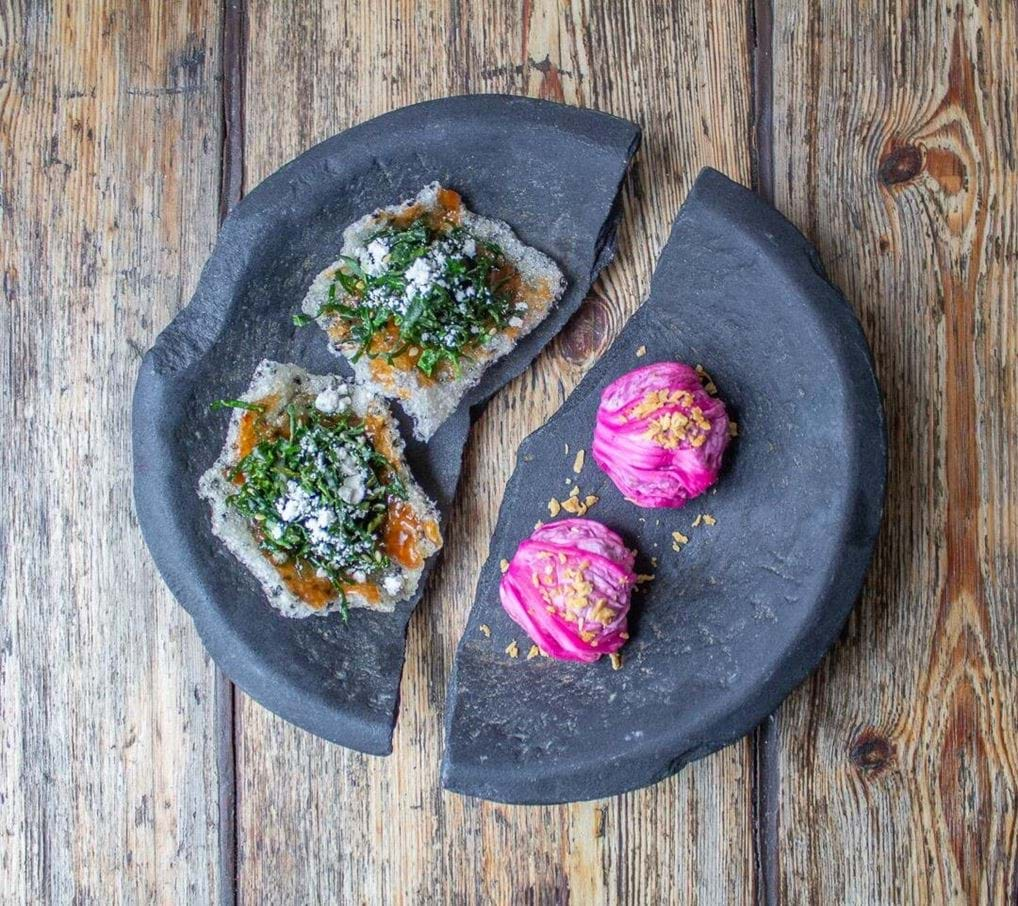
Why do you insist on not cooking with meat or dairy substitutes?
There are some great substitutes out there for home cooking – Linda McCartney’s range is always in my freezer. But in a restaurant setting, why are we taking a meat dish and let’s face it, making it worse, and then scoring it up as a victory for veganism? I don’t see the point of trying to replicate the thing you’ve chosen to leave behind. My job as a chef isn’t to serve you a plate of compromise – compromise isn’t delicious. The way we avoid it at Alter is to seek out recipes and cultures that haven’t adjusted a thing in order to be vegan. It keeps us learning and curious about the many cultures that see this as the norm.
What appeals to you about doing residencies and pop-ups?
The reality of London is that rents are high and so are guest standards. So unless you’re sitting on a pot of money, you don’t just jump from having an idea to finding a site. First you need to test the concept on a lot of people and gather feedback. The good news is there’s a decent pop-up scene here in London, with many venues opting to rotate chefs to keep things fresh for their guests. Pop-ups definitely lend themselves to experimentation because guests don’t know what to expect. As the chef you always have the element of surprise, and that’s a fun thing to play with.
How did you evolve the Alter concept for your upcoming residency at Leman Locke?
Coming into the project I was keen to find a venue that we could turn into a London version of a backstreet Thai noodle bar, but the minute I walked into the venue all I could think about was how much it reminded me of being in Tokyo – high rises everywhere with the coolest places sometimes being on the third, 21st or even 63rd floor. Luckily we’re on the first floor, but it’s definitely formed a lot of the inspiration for the menu – we’ll be channelling Tokyo’s inner-city izakayas with our small plates and house pickles. There are also some amazing dive bars out there, all neon signs and simple cocktails, and I definitely want to bring that feel into the space.
What’s your favourite thing on the new menu?
One that people have really responded to in a way that surprises me is the pizza-bread course. A while back I questioned why sourdough is so revered. Any restaurant you go to, it’s unquestionably there, and I never really got it – it’s bland, dry and beige. I thought there must be a more unique and playful way to interpret a bread course, so I came up with one based on everyone’s actual favourite bread: pizza. The dough gets fried in triangular shards and seasoned with a powder containing all the flavours of pizza. It’s then dragged through an Andalusian ajo blanco spiked with crispy basil. It has no place alongside all the Asian stuff on the menu and conceptually makes no sense, but when it’s the first thing you eat you just don’t care. I took it off the menu once and people got angry. Now I use it as a reminder not to take things too seriously.
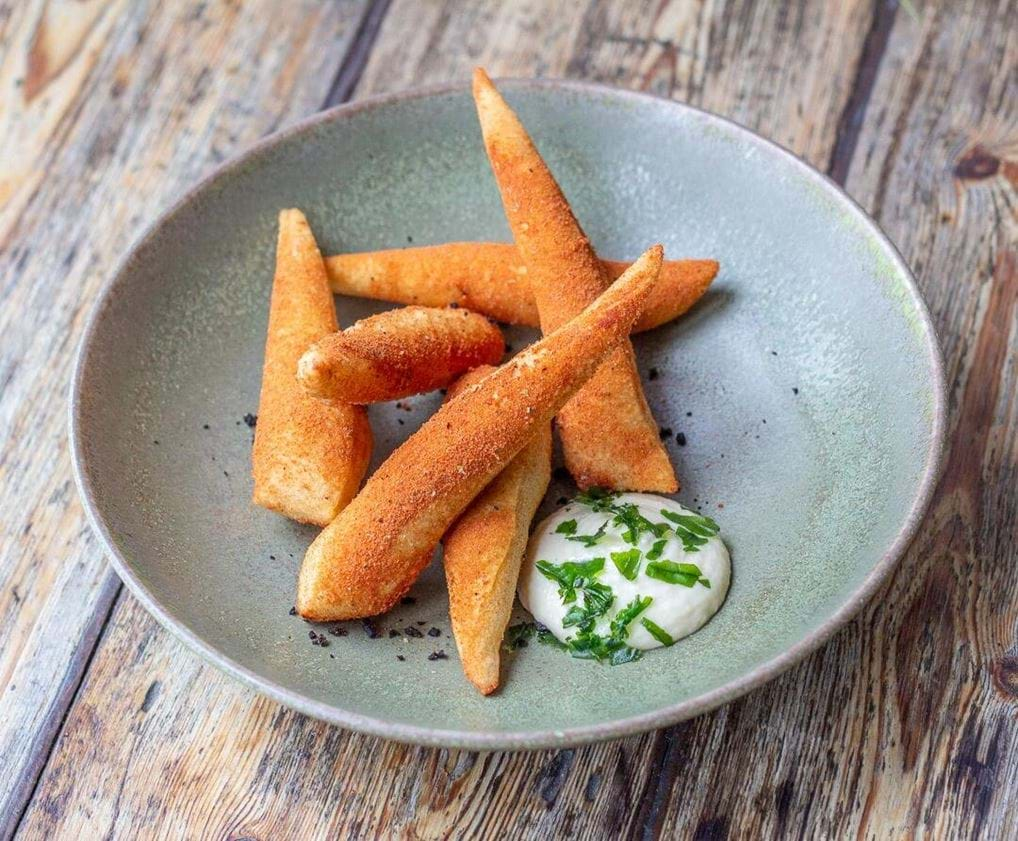
Alter Pizza Dough
We’ve heard you’re a fan of [chef, writer and TV presenter] Anthony Bourdain – what’s your favourite episode of Parts Unknown?
I think of Anthony Bourdain as one of the founding fathers of Alter. He represents that spirit of exploration and endless curiosity, and not accepting that your nationality has to define your relationship to the rest of the world. Food never represented luxury or privilege to him. It was never about showing off or finding “the best” anything. He was as at home in someone’s living room eating soup made by someone’s grandmother as he was on a blue plastic stool sharing noodles with the leader of the free world. I can’t possibly pick a favourite episode of Parts Unknown, but the ones that surprise you and challenge your preconceptions of a place certainly jump out, such as Georgia.
What street-food dishes have really rocked your world?
The one that is safely on my all-time menu is a Thai som tam, or pounded green-papaya salad. It tastes like pure escapism. Once at Som Saa we’d had a pretty rough night, so one of the chefs made me a plate of som tam and in one bite it was like I’d suddenly had 10 hours’ sleep, then been slapped awake and thrown on stage naked at a sold-out Wembley stadium. That’s Thai food.
Do you think London has a street-food scene in the same way that the Asian influences on your menu do? Where do you go in the capital to get inspired?
I’d love to try and massage London’s ego here, but honestly no. You look at other western countries like Italy, France, Spain and they’ve cracked it. But us, not so much. In terms of getting inspired in London, I fell out of love with fine dining a while ago… you’re more likely to find me at Singburi in Leytonstone, Etles Uyghur Restaurant in Walthamstow and of course, Som Saa. I’m not above a group restaurant either – Dishoom and Koya are both fantastic.
Is sourcing as locally as possible also part of your philosophy?
If you’re cooking ingredients that can be sourced locally, then you absolutely should. With alter however, it might not be quite as simple as that. We use suppliers from all over because unfortunately, they don’t grow ma-euk aubergines in London! What we do have, however, are some amazing shops and markets in which to find exciting produce. We use Night Star Market in London Fields for our more exotic produce – every time I walk in, I’m there for an hour. Where I live in Tooting, we have everything: South East Asian and Sri Lankan markets, multiple stores for pan-Asian produce, and even an Istanbul market for all things Middle Eastern.
Do you think the flexibility of your concept has helped you face lockdown and the ongoing challenges to hospitality? What are your hopes for the future?
It’s been an awful year for hospitality and there are so few positives to draw. Being a pop-up, I had the luxury of being able to simply pack up and go into hibernation. But it was like being on the other side of a mirror having to watch so many friends and colleagues suffering and being powerless to help. Who knows when having a permanent site with rent obligations and huge overheads will feel secure again, but I certainly think what will emerge from this will be more venues for hire, with pop-ups being an attractive low-risk option until confidence returns. I feel very fortunate to have found a home among the wreckage and can’t wait to get back to doing what I love.

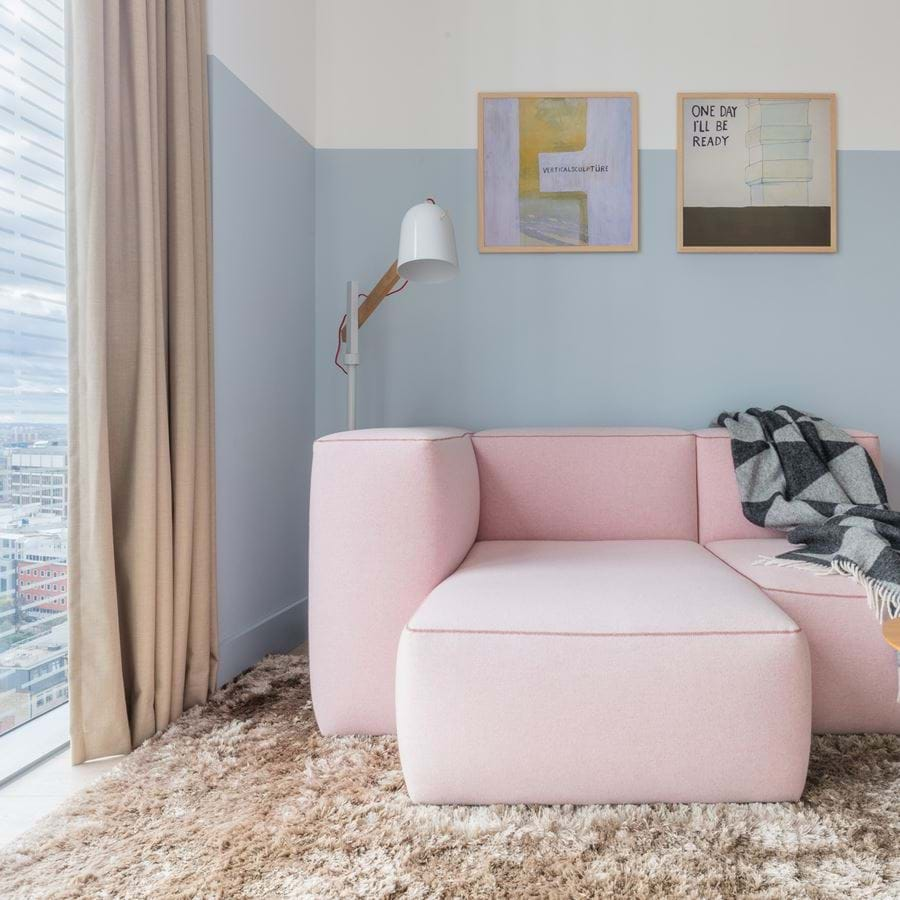
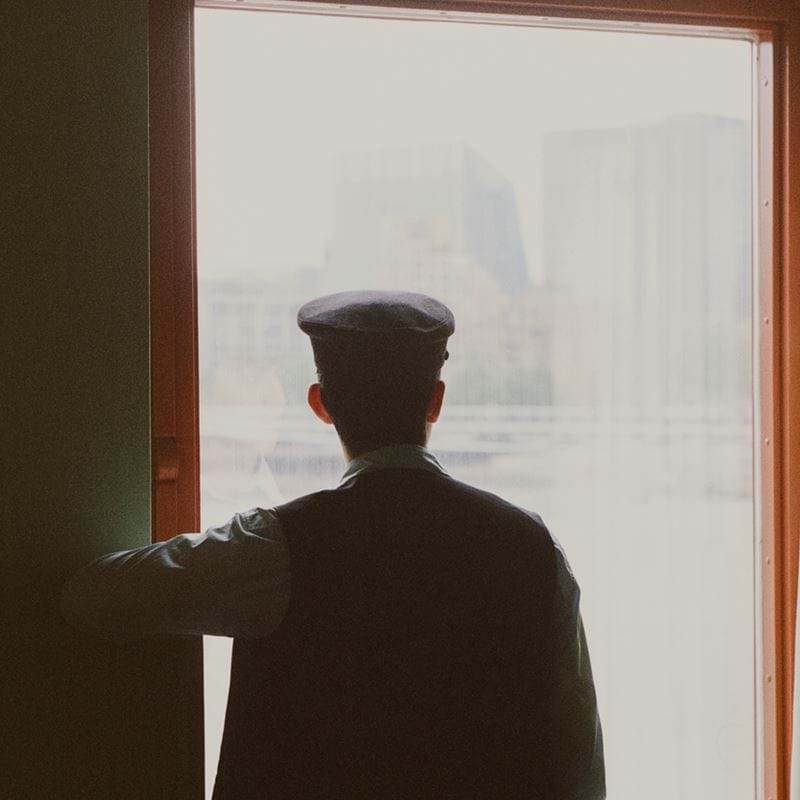
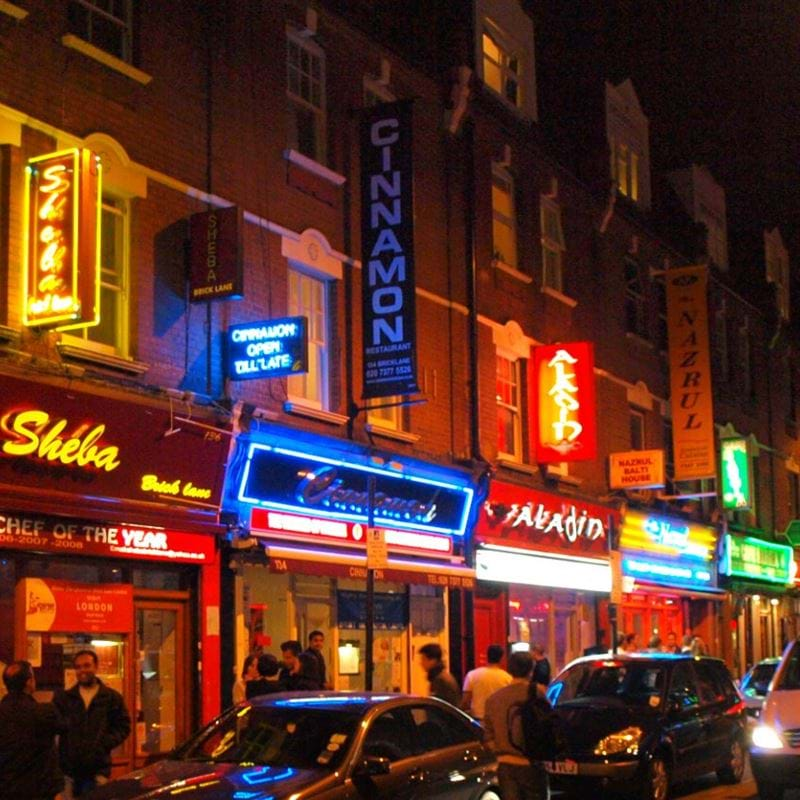
.png?width=800&height=800&mode=crop&format=jpeg&quality=80)
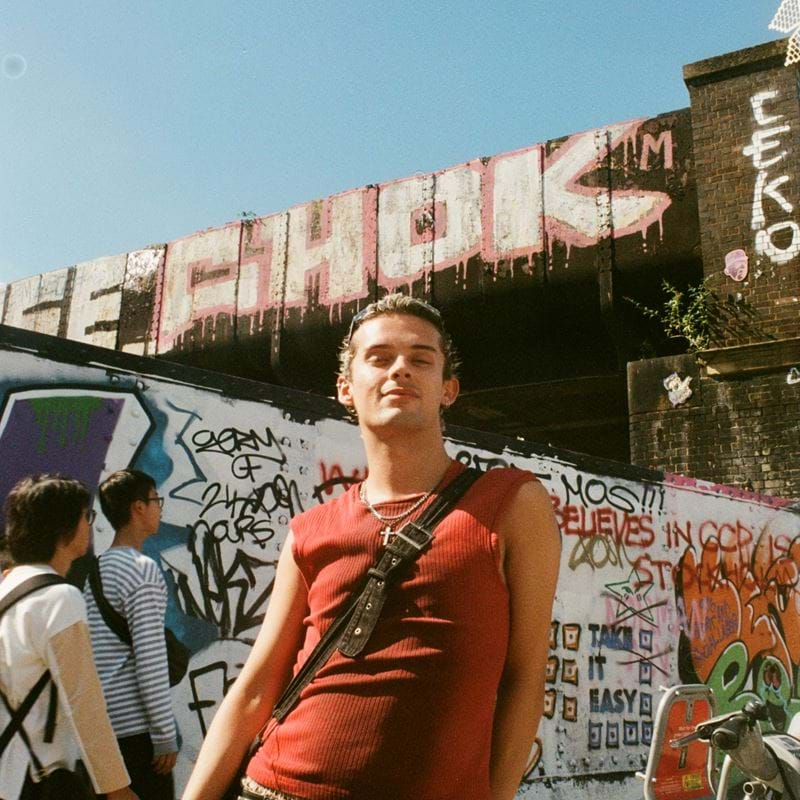
.jpg?width=800&height=800&mode=crop&format=jpeg&quality=80)
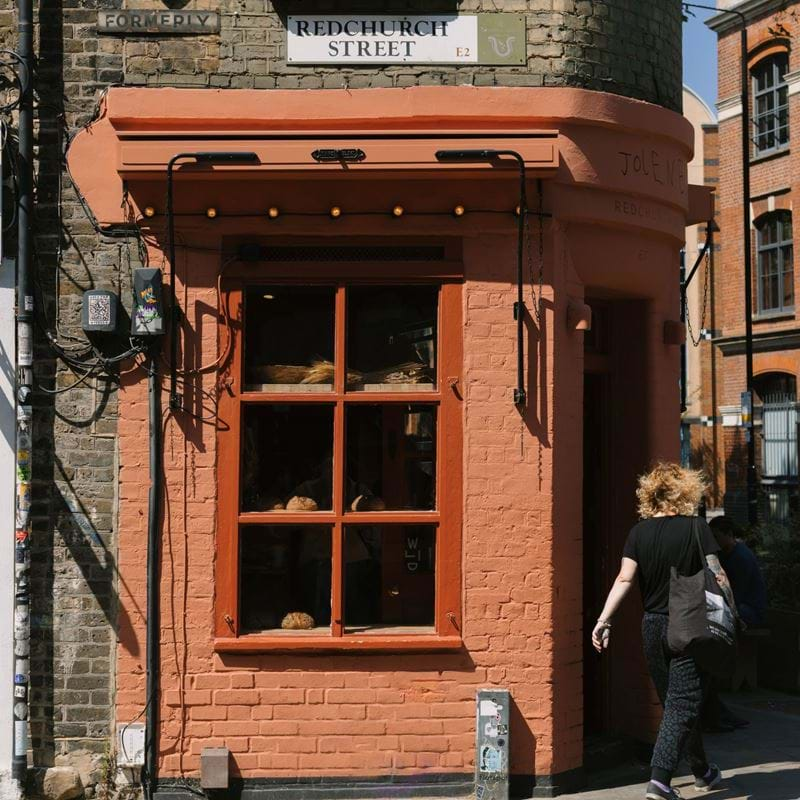

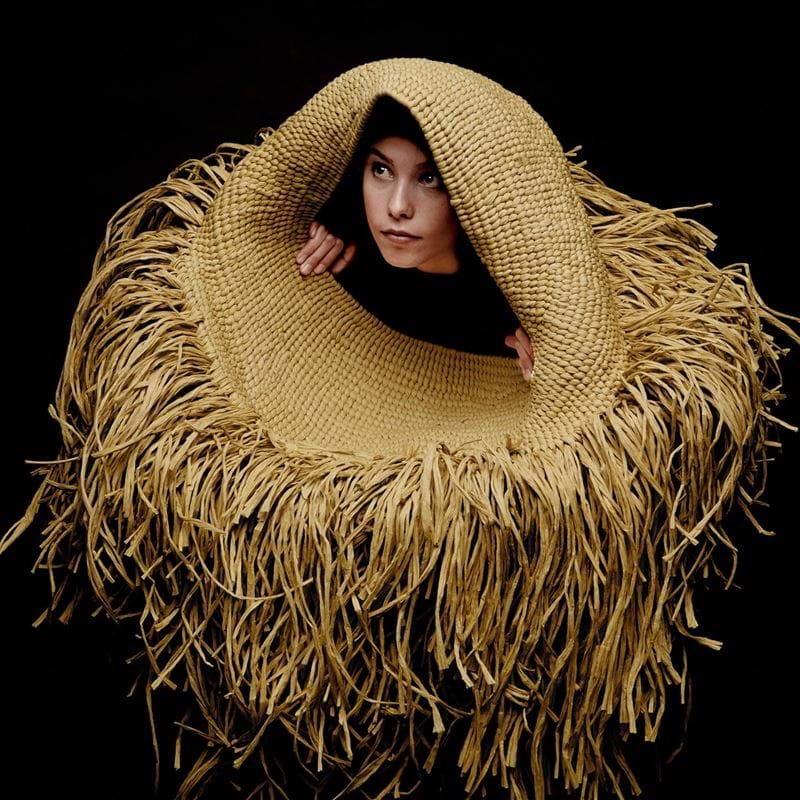
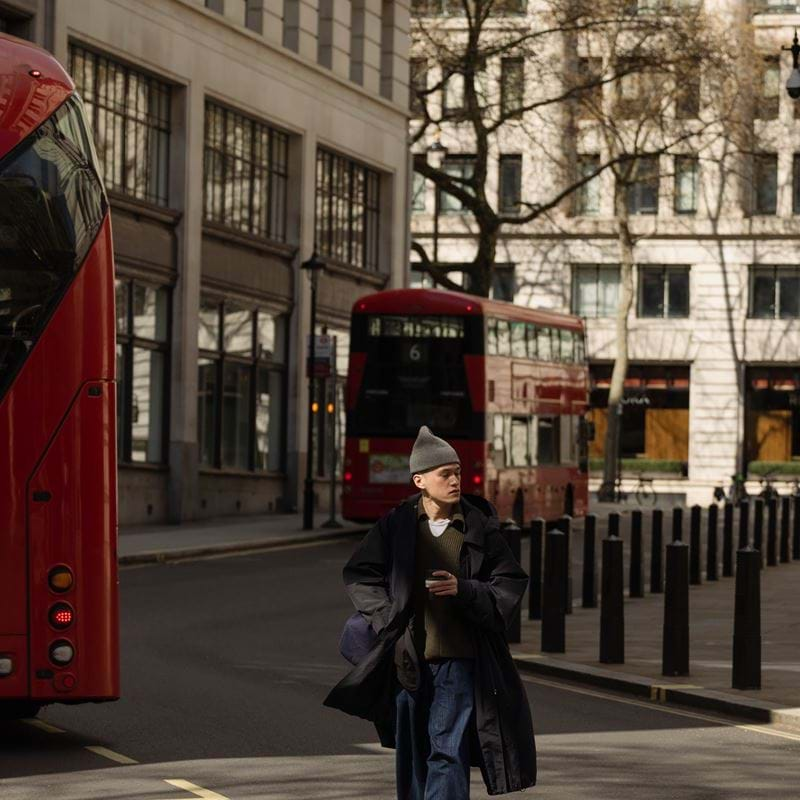
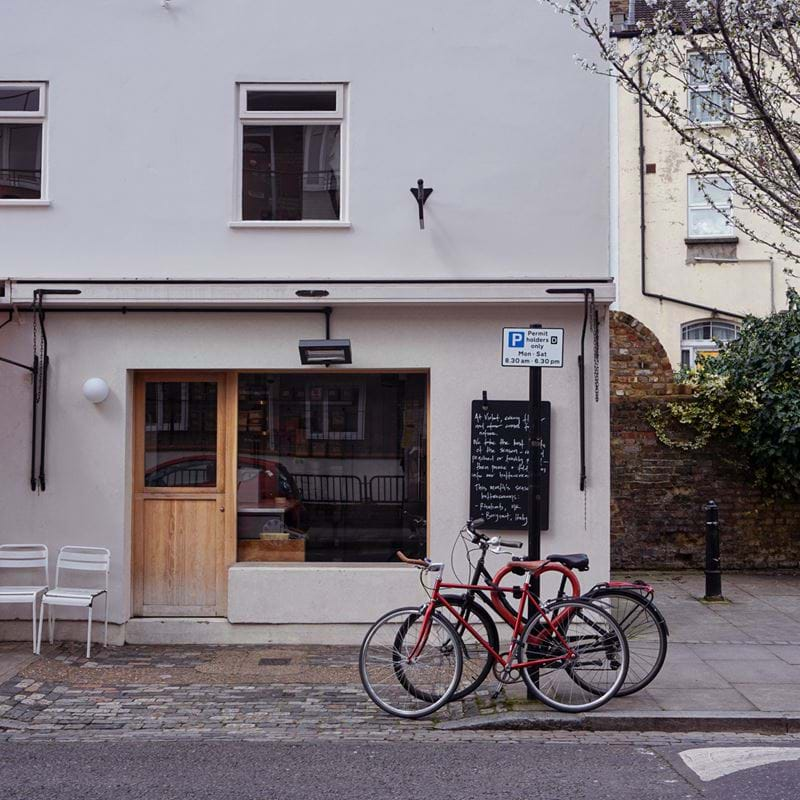
.jpeg?width=800&height=800&mode=crop&format=jpeg&quality=80)
